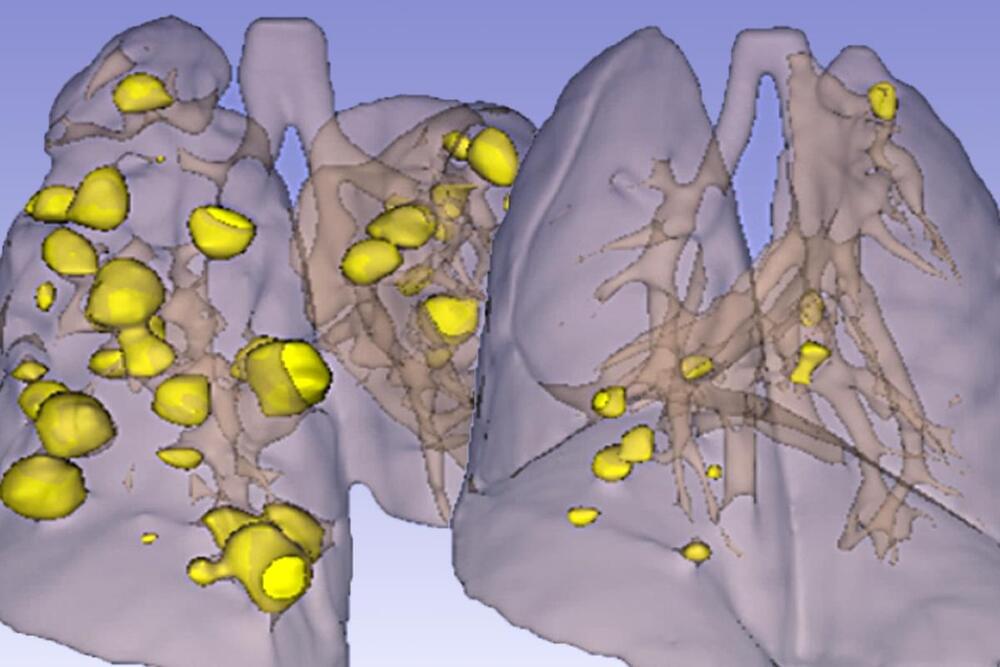An experimental combination of two drugs halts the progression of small cell lung cancer, the deadliest form of lung cancer, according to a study in mice from researchers at Washington University School of Medicine in St. Louis, Grenoble Alpes University in Grenoble, France, and The University of Texas MD Anderson Cancer Center in Houston.
One of the drugs, cyclophosphamide, is an outdated chemotherapy drug once used to treat small cell lung cancer. It was displaced in favor of platinum-based drugs in the 1980s. Both kinds of drugs work at first but falter after a few months as the cancer develops resistance. Platinum-based drugs became the standard of care mainly because they cause lesser side effects, but they have not substantially improved prognosis. Today, the typical patient survives less than a year and a half after diagnosis.
In this study, however, researchers showed that small cell lung cancer cells resist cyclophosphamide by activating a specific repair process, and demonstrated that throwing a wrench into the repair process makes the drug much more effective, at least in mice. The findings, available online in Cancer Discovery, suggest a pathway to better therapies for one of the least treatable forms of cancer.
